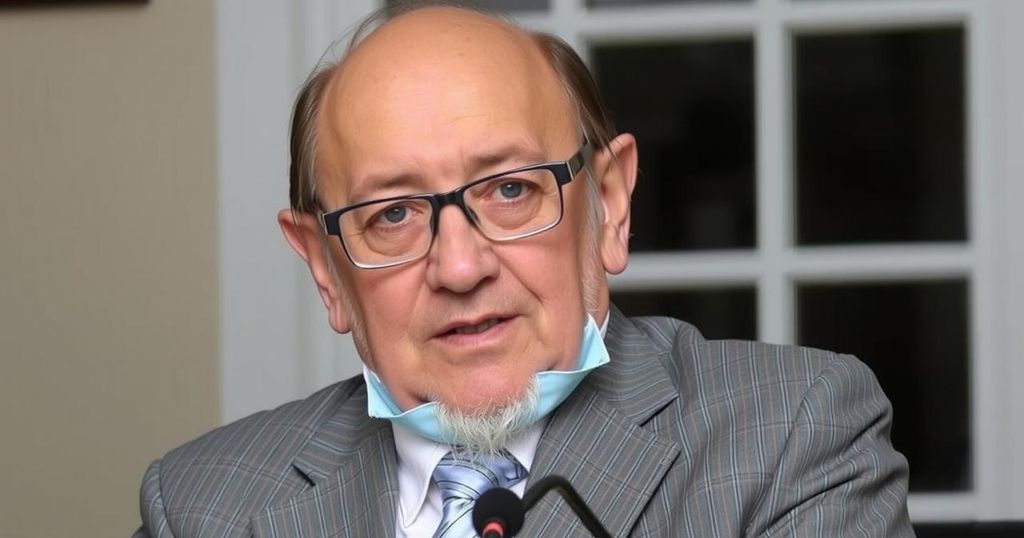Lebanese officials report that Rifaat al-Assad, the uncle of ousted Syrian leader Bashar al-Assad, has fled to Dubai amidst ongoing war crimes allegations related to the 1982 Hama massacre, where thousands were killed. Despite serious charges from Swiss authorities, Lebanese law enforcement has not acted against him. The Assad family is cited as having moved between Lebanon and the UAE, signaling ongoing political complexities.
Rifaat al-Assad, the uncle of the recently ousted Syrian leader Bashar al-Assad, has reportedly fled to the United Arab Emirates via Lebanon, as revealed by Lebanese officials. This move comes amidst allegations against him for war crimes related to the brutal suppression of a rebellion in Hama during the 1980s, a period during which he earned the moniker, “Butcher of Hama.” While Swiss prosecutors have formally charged him with these crimes, Lebanese authorities have not yet responded to any international requests for his arrest.
Rifaat al-Assad, now in his late 80s, was directly involved in the violent suppression of a 1982 uprising against the Syrian regime, which resulted in the deaths of over 10,000 individuals. The Syrian Network for Human Rights (SNHR) estimates that the toll may have exceeded 30,000 civilians. Currently, Switzerland’s Attorney General’s Office is pursuing war crimes and crimes against humanity charges against Rifaat, although there are considerations regarding the postponement of the trial due to his alleged ill health.
Reportedly, numerous members of the Assad family have traveled to Dubai from Beirut since the fall of the Assad regime earlier this month. While it remains unclear whether they intend to remain in the UAE or relocate elsewhere, emphasizes on the complexity of the political landscape persists. Notably, Rifaat al-Assad had previously lived in various countries including Switzerland and Spain before returning to Syria in 2021 after decades in exile. On another note, recent incidents at Beirut Airport have led to the detention of family members attempting to travel with tampered documents, underscoring familial ties to ongoing legal pressures.
The implications of Rifaat al-Assad’s past atrocities have been acknowledged in present-day contexts, particularly in light of Bashar al-Assad’s prolonged reign, which has mirrored the oppressive tactics of the past.
The article centers around Rifaat al-Assad, the uncle of Bashar al-Assad, who garners considerable notoriety for his role in the Hama massacre of 1982. This event marked a significant moment in Syrian history, wherein the regime violently quelled a Muslim Brotherhood uprising, leading to high civilian casualties. Rifaat’s subsequent political maneuvers, including his attempts to claim leadership, his exile, and international charges against him for war crimes, highlight the enduring legacy of his actions. The geopolitical ramifications of these aggressive state actions connect to contemporary events, especially given the recent changes in the Assad regime’s status. As Syria transitions politically, the movements of family members of the former regime, including Rifaat, reflect the uncertainty surrounding their futures amid international scrutiny and legal action. Similar patterns can be seen in other Syrian officials, indicating a broader narrative of responsibility for past military and political crimes.
In summation, the flight of Rifaat al-Assad to Dubai encapsulates the intertwining of past and present political certainties in Syria. As he faces serious war crime allegations, both historical and recent actions reflect upon the Assad family’s legacy of repression. The situation illustrates the challenges of accountability in the context of changing political dynamics and raises critical questions regarding the future of those who have historically wielded power in Syria.
Original Source: www.france24.com






